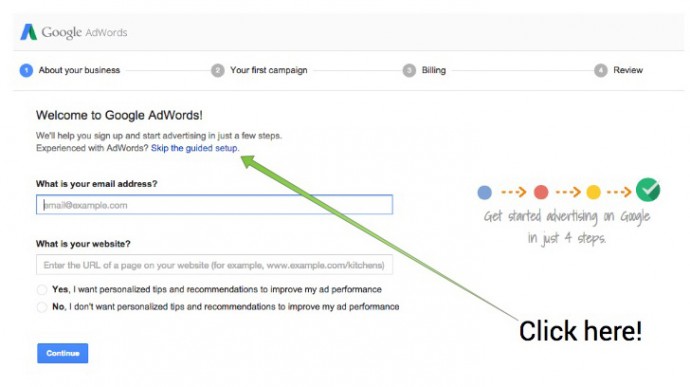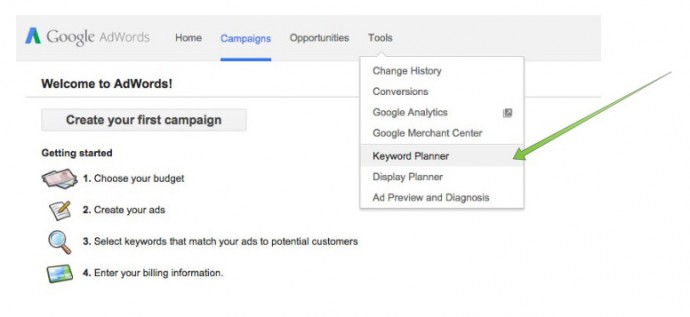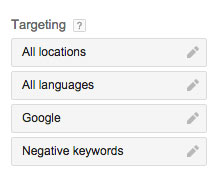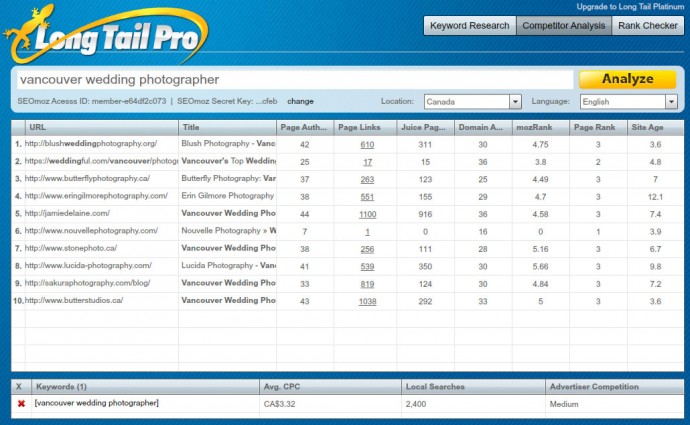Optimizing your website for a good search engine ranking should be one of your main priorities. “If you build it, they will come” almost certainly doesn’t apply unless you do some basic SEO. Studies have shown that 95% of people will click a link that’s on the first page of Google search results, and 70% of those clicks go to the top three results on the page. Think of the potential increase in business you might achieve if you were to occupy one of those coveted top slots.
There are many components to improving your site’s SEO; in this article we are going to concentrate specifically on keyword research. Keyword research is all about discovering exactly what it is that people are searching for, and then trying to rank highly (hopefully on the first page) for the search results of that term. This is really the foundation of your SEO strategy, so it’s important to get keyword research right.
Niche Down And Define Your Product
To do proper research, we need to be very clear on what our product is and we need to get quite specific so that we aren’t trying to compete with too many other websites. I’m going to use the example of a fictitious wedding photography business in Vancouver for this post. Our no-brainer keyword is ‘wedding photography,’ but you can imagine that such a broad term gets searched a great deal and has many competitors already.
It’s generally better to rank highly for a search term that gets less searches than to rank on page 10 for a highly popular term – within reason, of course. There’s no point ranking highly for something that only gets five searches a month.
For our example, it’s much more likely that we would have some success with a carefully optimized page that’s targeted geographically, like ‘Vancouver wedding photography’ or perhaps an even smaller niche like ‘West Vancouver wedding photography.’ Longer, more specific keyword phrases like this are often referred to as long tail keywords.
Whenever I’m discussing SEO, I always like to remind people of Google’s basic business model because it gives a clearer view of how keywords work. Google provides a search service and they want to deliver the best possible search results to their customers. The majority of Google’s business comes from search advertising. Quite simply, the more people who use Google’s search engine, the more money Google makes. Therefore it’s in Google’s best interests to make sure they are providing their customers with the best possible search results for the exact term that they searched for. The more you can convince Google that your page holds the exact information that was being searched for, the higher your ranking will be.
So, how do we find out what people are searching for?
Google Keyword Planner
Google provides a free tool that will help us with much of our keyword research. A couple of years ago they changed how this tool was accessed, and in my research for this article I discovered that the majority of content out there doesn’t reflect this change.
When trying to access Google Keyword Planner, there is a very important step that needs to be taken. Keyword Planner is intended to help advertisers plan their Google AdWords campaigns by telling them exactly what people are searching for. While we aren’t going to run any ads at this time, you do now need to sign up for an AdWords account in order to get access to the Keyword Planner tool. Most people have a Google account already, so setting up an AdWords account takes just a few seconds, but this is where the crucial step lies.
1. Firstly you need to sign into your Google account.
2. Next, visit adwords.google.com and click on the “Start Now” button.
3. IMPORTANT: On the next page, you’ll be presented with a screen that asks for some basic information about your business. You MUST click the link that says “skip guided setup.” If you do not click this link then you will be, for reasons only Google knows, forced into creating and paying for an ad before you get access to the Keyword Planner tool. We don’t want to do that. This small oddity caught my attention and led me to forums full of other frustrated people facing the same issue. There apparently is no way to go back once you have passed over this first page, so do not miss the link and do not explore the further pages expecting to be able to click back later.
4. If you followed the steps correctly, clicking the link will take you into your AdWords dashboard, where you will want to navigate to Tools>>Keyword Planner
Keyword Discovery
Once you’ve input your initial keywords into Keyword Planner, you’ll get a result that tells you, on average, how many times that phrase was searched for in your chosen region. Beneath this will be some further suggestions for similar keywords that you might want to consider as well.
You can see that I started here with our phrase, ‘Vancouver wedding photography’ since this is the first one that came to mind. On average, it was searched for 480 times per month. The competition is listed as “Medium”, but this refers to the AdWords competition for Ad space based on those keywords. Immediately beneath our top result is ‘Vancouver wedding photographer,’ and for this we can see that the average number of monthly searches is 2,900. Just a tiny change in the phrase, from ‘photography’ to ‘photographer,’ and there’s a dramatic rise in the search numbers – a good indicator that this should be our chosen phrase instead.
We always want to strive for exact matches with our search results, so this small change is important. It’s often the case that grammatical changes have a huge effect on the search numbers, which is why I conduct keyword research for every page and post on all of my sites. A few minutes to check on how other people would search for a topic or service might very well double the traffic that I get to a blog post over its lifespan.
I mentioned earlier that perhaps we might niche down even further and try ‘West Vancouver wedding photographer,’ but Keyword Planner told me that there was an average of zero searches for this phrase per month. It’s good to test these things, though. Now we know that ‘West Vancouver wedding photographer’ won’t be effective.
Another thing that we might want to take into account for local businesses is the location of the searches. On the left side of Keyword Planner is a set of filters that will allow you to target your results geographically. In our case, we want to rule out everyone who’s searching for Vancouver, WA instead of Vancouver, BC, so we can change the target to check for average monthly searches in Canada only. This drops the search matches down to 2,400 per month, but that’s still a large portion of the 2,900 total we had before.
It’s interesting to note that 8 out of the top 10 search rankings for ‘Vancouver wedding photographer’ actually have URLs that use the word ‘photography’ instead of ‘photographer.’ Our research tells us that while this seems logical, it’s not actually what people search for. If you didn’t already have your URL decided, it might be worth considering some options that get better exact matches.
After you’ve decided on the best keywords to target for your page, you want to make sure you use them in your content, your meta description and even the URL if possible. Google is pretty clever these days, though, so don’t keyword spam with page titles like ‘Best Vancouver wedding photographer photography.’ Keep the phrases genuine and your site will look all the more professional to your potential customers. And don’t forget image file names as a place to use your keywords, as well as the image ALT text, which can be easily edited in the media insertion panel for WordPress posts and pages.
What makes WordPress (and blogging in general) such a powerful marketing tool is that each post or page we create gives us a new opportunity to rank for a new set of keywords. You can use Keyword Planner to find out which topics people are searching for and then generate blog posts based on those ideas.
3 Additional Keyword Research Tools
Keyword Planner isn’t the only keyword research tool you can use. Here are a few other common tools:
Long Tail Pro
Long Tail Pro a paid tool that I use for my own websites. The first part of it is essentially a friendlier user interface for Google’s Keyword Planner that will deliver all of the same results by hooking into Google’s API. The second part hooks into the API from popular SEO company Moz and will show you the top ranking Google results for your chosen keyword along with a ton of data, like page rank and backlinks. It’s definitely a tool for power users, but if you develop a regular blog as part of your marketing strategy (HINT: you should!), then it’ll help you to quickly decipher the best keywords to target for each post that you publish. You can also perform a reverse lookup that lets you know where you rank on Google for a specific search term – handy for monitoring your progress as you climb the charts!
Moz Bar
Moz Bar is a free tool is a Firefox or Chrome browser extension that performs a ton of analysis on the pages you visit. It’s a great tool for checking out competitors’ websites in order to get a better idea of what you’re up against when you try and outrank them in the SERP (search engine result page).
Moz Keyword Difficulty Analysis
Moz’s paid Keyword Difficulty and SERP Analysis Tool uses all of the backlink and search data they have to provide you with a simple score that aims to define the difficulty of ranking for a particular keyword with your domain. It’s probably the easiest and fastest way to do serious initial keyword research, but it does come at a price. If your time is valuable, though, this might be an option to look into.
Conclusion
By understanding and applying the basics of keyword research, you can make a steady and realistic climb up the search rankings. This will enable you to drive traffic to your website and attract new customers even while you’re not working.







Leave a Reply